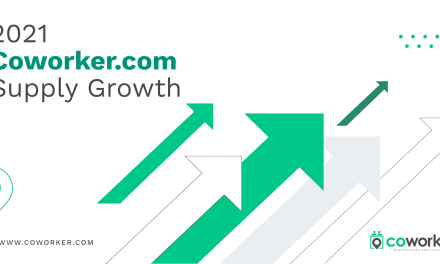Whether working onsite at a corporate office, from home, or at a “third” location like a coworking space, most employees are in search of community. The Edelman Trust Barometer found that 69% of employees believe the people they work with are a significant source of community in their lives.
Simultaneously, companies have become more interested in finding opportunities to bring employees together to address issues and explore opportunities for action within their teams and society at large. In fact, the Edelman Trust Barometer Special Report: Trust at Work found that from 2021 to 2023, there was a seven-point increase regarding employees’ willingness to work with their employer to produce or motivate urgently necessary changes within a business.
As teams become increasingly distributed across geographies and time zones, leaders are eager to create opportunities for colleagues to come together to implement changes for a better work experience — and a better world.
In 2024, companies must consider the factors driving this aspiration to transform the workplace into a space for building community and social impact, and how managers can up-level their skills to support this growing desire.
A driving force behind this shift is rooted in worker identity. Over the past few years, employees moved from “working humans” to “whole humans.” Working humans showed up to work for a paycheck and adhered to their offices’ typical norms and structures.
Beyond exchanging niceties about family members or a shared a sports team and offering a ‘happy birthday’ to their colleagues, they checked their personal lives at the door upon arriving to work each day. Subsequently, they were evaluated primarily on their performance and professional trajectory.
Now, many people show up to work ready to share both their professional and personal lives. They expect their workplace to welcome their wholistic outside experience inside the workplace; in other words, they want and need to be managed and thought of as “whole humans.”
Data driving new workplace behaviors
For managers to upskill and cultivate this increased desire for community, it helps to unpack the data driving these behaviors. Here are key statistics that explain this shift and employees’ new expectations:
– Educational attainment has risen over the past 15 years, but still, only four in ten Americans 25 years of age or older have completed a four-year degree at college — a place where people’s worldviews and perspectives are often expanded and reshaped for the first time.
– Most Americans, nearly seven out of 10, live their adult lives in or near the same cities and towns in which they grew up, rarely having the opportunity to meaningfully interact with people who have vastly different life experiences from their own.
– More people are now aware of and care about societal issues compared to previous years, with 71% saying societal impact is a strong expectation or deal breaker when considering a job. This includes jobs that reflect workers’ values, or ones where a CEO actively listens to employees and takes a stand on issues.
– Lastly, Millennials are now the largest living generation and represent 35% of the workforce. Fueled by the era of tech-enabled transparency, millennials appear to believe, along with Gen Z, that life is always on, and they have embraced the idea of being more of themselves at work.
These factors underscore that the workplace — remote, hybrid or in-person — has incredible power and influence in workers’ lives and serves as a go-to outlet to advance conversations on key societal issues.

Leaders’ role in forging meaningful connections
As workers increasingly show up as “whole humans” ready to make change from within, people managers are now on the front lines of this action, increasingly brokering conversations and change campaigns to meet employee expectations and business objectives. This is a new skill for many who were previously trained on how to manage working humans, not whole humans.
To aid this evolution, managers need to develop the skills necessary to manage whole humans. All leaders can develop this ability by practicing seven essential skills:
- Leading valuable conversations
- Listening intentionally
- Developing empathy
- Making decisions in an adaptable way
- Representing others when they’re not in the room
- Persuading without alienating
- Learning and practicing forgiveness
A new year always offers new opportunities to recommit to personal and professional resolutions alike. These seven skills help leaders accomplish both by deepening their understanding of “whole humans,” which represent the leaders’ themselves, as well as their direct reports.
Cultivating community in the workplace enriches the experience for everyone involved, which is why it will remain a key motivator in 2024 and beyond.









